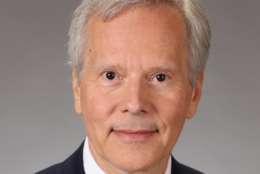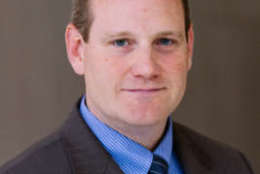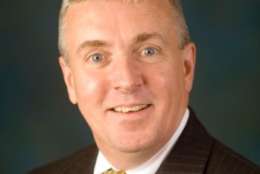National & World Headlines
-
The Navy closely watching as contractors and vendors transition to the Defense Biometric Identification System.
August 07, 2017 -
Veterans Affairs Secretary David Shulkin said the agency is not privatizing, but additions to the Choice program will help create more comprehensive programs and partnerships to provide veterans with the best care.
August 07, 2017 -
According to the Government Accountability Office, the savings strategies the Defense Department has briefed to Congress aren’t detailed enough to come up with a meaningful evaluation.
August 04, 2017 -
The Air Force is giving senior enlisted airmen an opportunity to stay in their ranks longer if they are in critically needed occupations.
August 04, 2017 -
A fund in the House defense appropriations bill is raising a lot of questions about congressional jurisdiction and the possibility of sequestration.
August 03, 2017 -
The U.S. Court of Appeals for Federal Claims ruled the Army went too far in trying to be fair to bidders on a recent recompete contract.
August 03, 2017 -
The Defense Department released a report about splitting the office of the undersecretary of Defense for Acquisition, Technology and Logistics in two, and standing up the new position of chief management officer.
August 03, 2017 -
The Defense Department sent a report to Congress detailing recommendations to reorganize and restructure its Acquisition, Technology and Logistics office and the role of its chief management officer.
August 02, 2017 -
Work never stops for the Homeland Security office of inspector general. Two recent investigations found some common problems — weaknesses in IT systems or procedures for managing basic functions. Deputy Inspector General John Kelly shares the details on Federal Drive with Tom Temin.
July 31, 2017 -
The Defense Logistics Agency says it has addressed several of the weaknesses that allowed undercover GAO investigators to obtain "controlled" military equipment by posing as a fake federal law enforcement agency. But some members of Congress say the steps aren't enough, and want the program suspended.
July 31, 2017 -
What role does the Defense Industry Initiative play in promoting ethical business practices for defense contractors? Find out when the Boeing Company's Ellen Martin and Tom McDaniel with the Harris Corporation join host Roger Waldron on this week's Off the Shelf. August 1, 2017
July 30, 2017 -
Last year the National Guard announced it was expanding training days for armor and Stryker units. Now the first units are finishing up some of the training.
July 28, 2017 -
A new OMB mandate gives agencies until Sept. 1 to come up with plans to transition their own package shipping contracts to a new contract vehicle negotiated and administered by the Defense Department.
July 27, 2017 -
The Army has been through a lot in its six months without a civilian leader.
July 27, 2017 -
Tiffany Hixson, the assistant commissioner for GSA’s Federal Acquisition Service’s Office of Professional Services and Human Capital Categories, said her office is conducting training and providing help for agencies through a Services Acquisition Workshop (SAW) approach.
July 27, 2017















